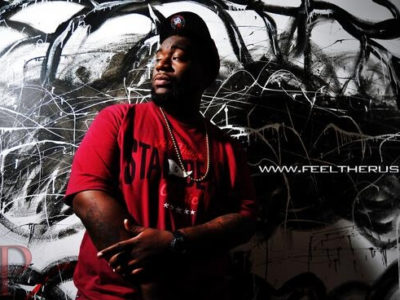If there is anything worth living for, it’s life itself. Hip hop artist David Rush knows all too well that “Lights, Camera, Action” is a fad that can easily slip away. His early interest for all forms of entertainment soon served as a testament for living on the edge. While many jam to his singles “Go Girl” and “Shooting Star (Party Rock Remix)” featuring Pitbull and LMFAO, Rush lives to tell how he conquered death and overcame physical and mental health.
“I was given a year to live if I wasn’t put on dialysis immediately,” he said as he recounted his medical history.
In 2006, at the height of his music scene, Rush was diagnosed with Focal Segmental Glomerulosclerosis (FSGS), a rare kidney disease that attacks the kidney’s filtering system causing serious scarring. Without a known cause, he began treatment in March 2007.
Rush said dialysis changed his whole world. “Life based on numbers and needles stuck in your arm three times, five days a week was horrible,” he added.
Trying to survive every day, opened his eyes and challenged his perspective too. “My drive and will to live, waking up happy every day started when I woke up on dialysis,” he said.
In spite of a life-threatening condition, Rush joined artist Pitbull in a 40-city tour titled The Rebelution in 2009. Self-managing a traveling dialysis machine, every day in the hotel room before the show started, he would take his treatment, perform a 45 minute show and then come back for more treatment.
Rush completed the tour, but upon return was on bed rest for one month because of an infection that grew in his shoulder during his travel. In that time, he also continued building his record portfolio in Los Angeles with famous producer Soundz.
Family and friends played a huge role in his recovery. On Nov. 9, 2010, Rush underwent a transplant with a donated kidney from his brother that unquestionably saved his life.
Before Rush was told he would die in a year at 25, that he couldn’t have children and that the tour wouldn’t be best for him, he graduated from the Art Institute of Atlanta where he studied multimedia and media film production, dreaming that if he ever had the chance to become a famous rapper, he could edit his own videos.
Yet like any student, Rush dealt with the financial barring of being in college. “To start a career like that you gotta have money to make money,” he said.
Money was one of many problems; self-identity was another. As a young man from the suburbs of New Jersey, anxious to be a known industry figure, he unfortunately (or fortunately depending on how you look at it) could not relate to song topics of guns and drugs.
Even so, he attributes the practical knowledge gained about the music industry to his experiences in Atlanta at a booming time. He worked alongside a wide-range of industry figures like now famous producer Soundz and rappers Young Geezy and Young Joc.
While they served as the initial gateway, today he has a signed deal with Mr. 305 Inc./Universal Republic record label. Currently, he is on the D – Tour with Jamie Drastik and working on an EP with Chad B titled Pizza and Champagne. In addition to these projects, he is producing a solo album titled the Lift Off.
“I still wake up thinking I am dreaming. It is still new to me. I still wow myself when I hear what is going on behind me,” he said referencing his song being played at the Giants stadium after party.
Over the years, Rush has come to realize, “The music thing is the icing. It is the fun part, not end all, tell all.”
Today, he takes 22 pills a day, four times a day – at 8 a.m., 1 p.m., 5 p.m. and 8 p.m. instead of two large 15-inch needles stuck in his arm, working in opposite directions to suck out bad blood and insert good blood.
Even with a medical condition, Rush encourages everyone to dream.
“Speak into existence what you want. Know who you are first and make that what you represent,” he said. “It’s not the other way around.”



















